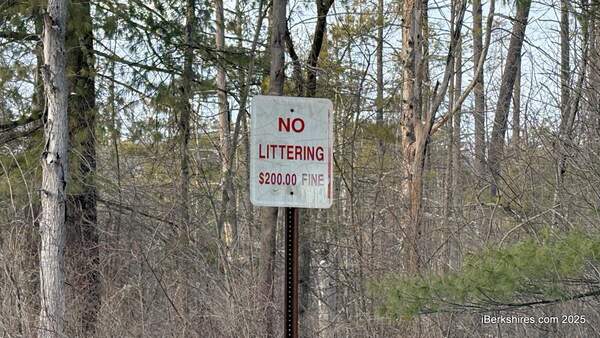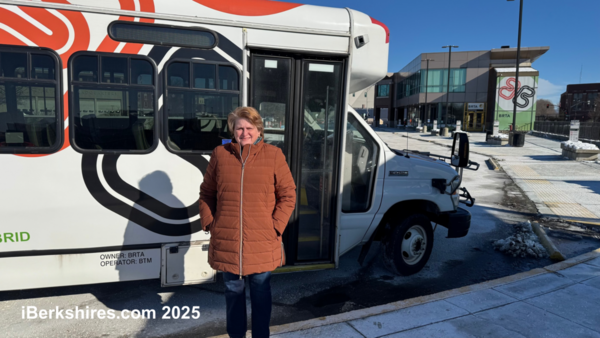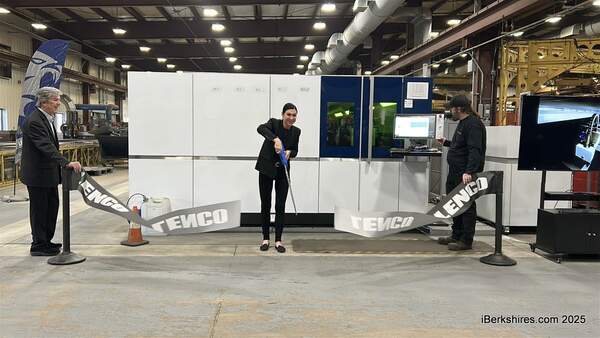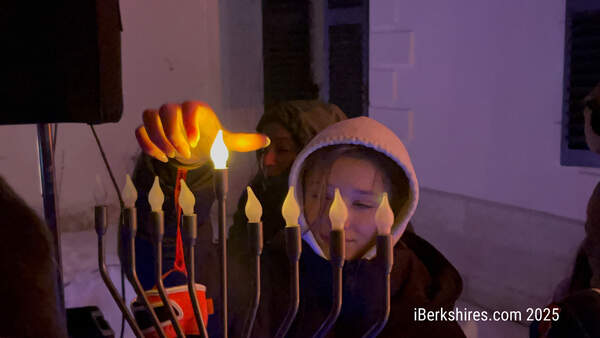Letter: Vote YES on 2 for Ranked Choice Voting
 |
To the Editor:
Over the past eight years, I have written numerous columns in support of Ranked Choice Voting (RCV): "A case for instant runoff voting," (11/3/12)(Eagle); "Put Instant Runoff Voting on the Ballot," (11/4/14,Taunton Daily Gazette); "A Better Method for Pittsfield Elections," (9/25/15, Berkshire Eagle); "Let's work democratically to create a true democracy," (1/15/17, Eagle); "Become informed on ranked choice voting," (5/19/18, Brattleboro Reformer); "Ranked Choice Voting's time has come," (8/27/18, Eagle); "Fall River's election lesson," (3/22/19, Eagle and Bennington Banner); "Primary case for ranked choice voting," (4/6/20, Eagle). You can read some at delgallocolumns.wordpress.com.
With RCV, voters ranks their choices in order of preference instead of picking just one candidate. Candidates must win with a majority (over 50 percent), and not a mere plurality (most votes). If no candidate has a majority, the candidate that came in last is eliminated and there is a runoff election. But instead of having a runoff election at another later date, it is done instantly by using the second choices of the voters of the last placed candidate. This is process is repeated until some candidate gets a voter. While this is simple to understand, a voter need not understand that to participate in an RCV election.
There are only two things a voter needs to know when using RCV before casting a ballot. First, instead of voting for one candidate, you rank them in order of preference. As simple as ranking candidate choices in order of preference may be, opponents repeatedly argue that this is "too confusing" for voters. This is a preposterous insults to voters' intelligence.
Apart from ranking choices, the only other thing that a RCV voter needs to know is that RCV eliminates "game theory" or "strategic voting." Under no circumstance should a RCV voter try to "strategize" their vote instead of ranking their choices in order of preference. Simply put, voters' lower ranked choices will never hurt their higher ranked choices — it is mathematically impossible. By voting a certain candidate as your second choice for instance, there is no mathematical way rearranging your third, fourth, and fifth choice candidates will somehow better or worsen the chances of your second choice. Opponents claim RCV will actually lead to such strategic voting, and that is mathematically fallacious.
Conversely, there is obviously strategic voting under the current plurality system. Most notably, when you only have one choice, you better vote for one of the two likely top vote-getters if you don't want to "waste your vote." Understandably, when there are two or more candidates splitting up a vote drawing on the same voters due to similarity of viewpoint, one candidate will often pressure the other candidate by arguing, and correctly so, that if one of them does not drop out of the race, they will split the vote and neither will win, causing the remaining candidate with dissimilar views to win the election, even though the remaining candidate does not represent the views of the majority.
Because voters feel the need to vote for one of the top-two likely vote-getters so as not to "waste a vote" by voting for a "spoiler," they don't vote for less financed candidates, making money much more important. Third parties have little hope of developing because of the spoiler effect: Google "Duverger's law." And of course, under our current plurality system, because voters do not want to waste their votes, voters constantly have to choose between voting their heart, or voting for the lesser of two evils. Most importantly, the winner that emerges in the plurality system is very often not the candidate that enjoyed the confidence of a majority of voters, and majority rule is the essence of democracy.
Perhaps the most vacuous argument against RCV is the possibility of the "exhausted" ballot, by someone that did not rank all the available choices. It is true that if one didn't rank all candidates, it is theoretically possible to have all choices exhausted by the final round because the voter did not select a candidate that would be in the final round. This is especially true if all the candidates the voter chose were no hopers not likely to be left standing in the final round. The obvious problem with this argument is that choice exhaustion by the final round can be completely eliminated by ranking all the candidates, or highly reduced by at least ranking one of the "lesser evil" candidates likely to be in the final round. Obviously, while under RCV it is a theoretical possibility for a voter to not have a say in the final "instant runoff election" round, this always happens under our current plurality system when a voter votes for a candidate that is not one of the top two vote-getters.
Finally, opponents correctly observe that with instant run-off elections, a candidate that got the second or third or even fourth most votes in the first round could win, which they hold out to be as somehow self-evidentially absurd. But democracy should be about getting the consent of the majority of the governed, not merely being the sole survivor oddball because voters having a majority viewpoint split their vote.
Rinaldo Del Gallo
Lenox, Mass.
Tags: election 2020,















